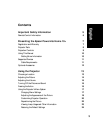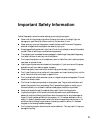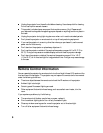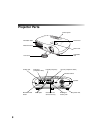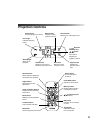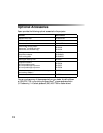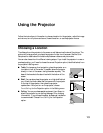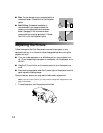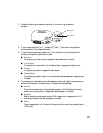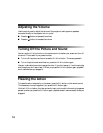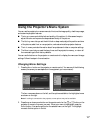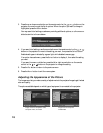
11
Supported Devices
You can connect the projector to any of the following video sources: VCR, DVD player,
DTV decoder, HDTV tuner, videodisc player, cable/satellite box, TV, video game console,
audio/video receiver, camcorder, personal video recorder, digital camera, or laser disc player.
You can also connect to a desktop or laptop PC or Apple
®
Macintosh
®
system.
The projector supports composite video, S-video, and component video, and it automatically
senses the video format (HDTV, NTSC, PAL, or SECAM).
The Quick Setup sheet explains how to connect your projector to your other equipment. For
cable requirements, see the next section.
Cable Requirements
The projector does not come with any cables. However, you may already have the ones you
need, or you can purchase them from Epson, as described in the next section.
■ To receive a composite video signal, you need an RCA video cable. (One is usually
provided with your video equipment.)
■ To receive an S-video signal, you need an S-video cable. (One is usually provided with
your video equipment.)
■ To receive a component video signal from a DVD player, HDTV tuner, or other video
device, you need a component video cable.
■ To connect a computer to the projector, you need a VGA computer cable.
■ Some older PowerBooks
®
and Macintosh desktop models may need a Macintosh adapter
set. (You can purchase this from Epson; see the next section for details.) Older iMac
®
systems may need a special adapter to provide a VGA output port; see your computer
dealer.



